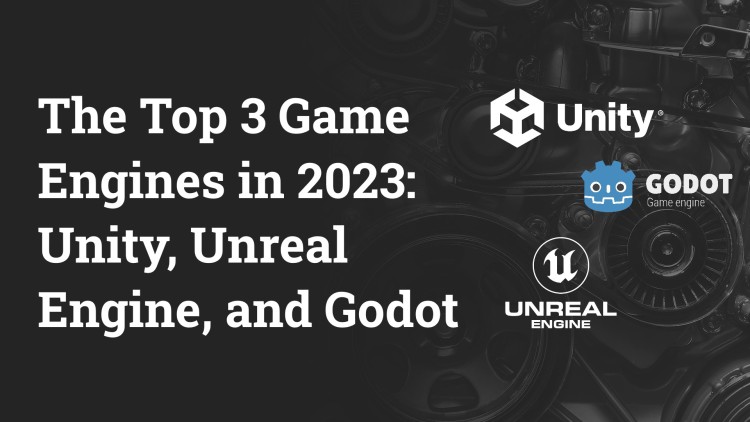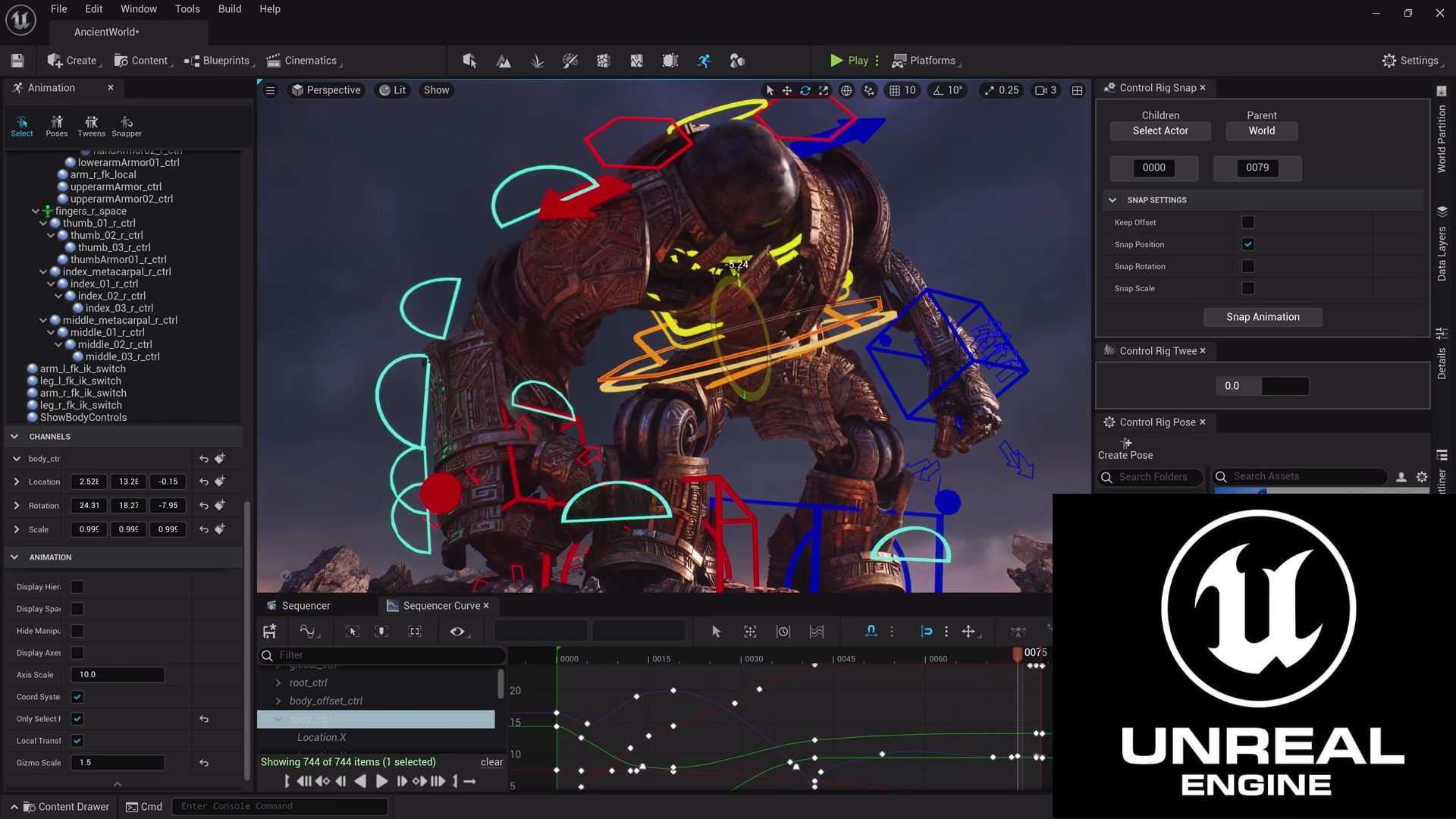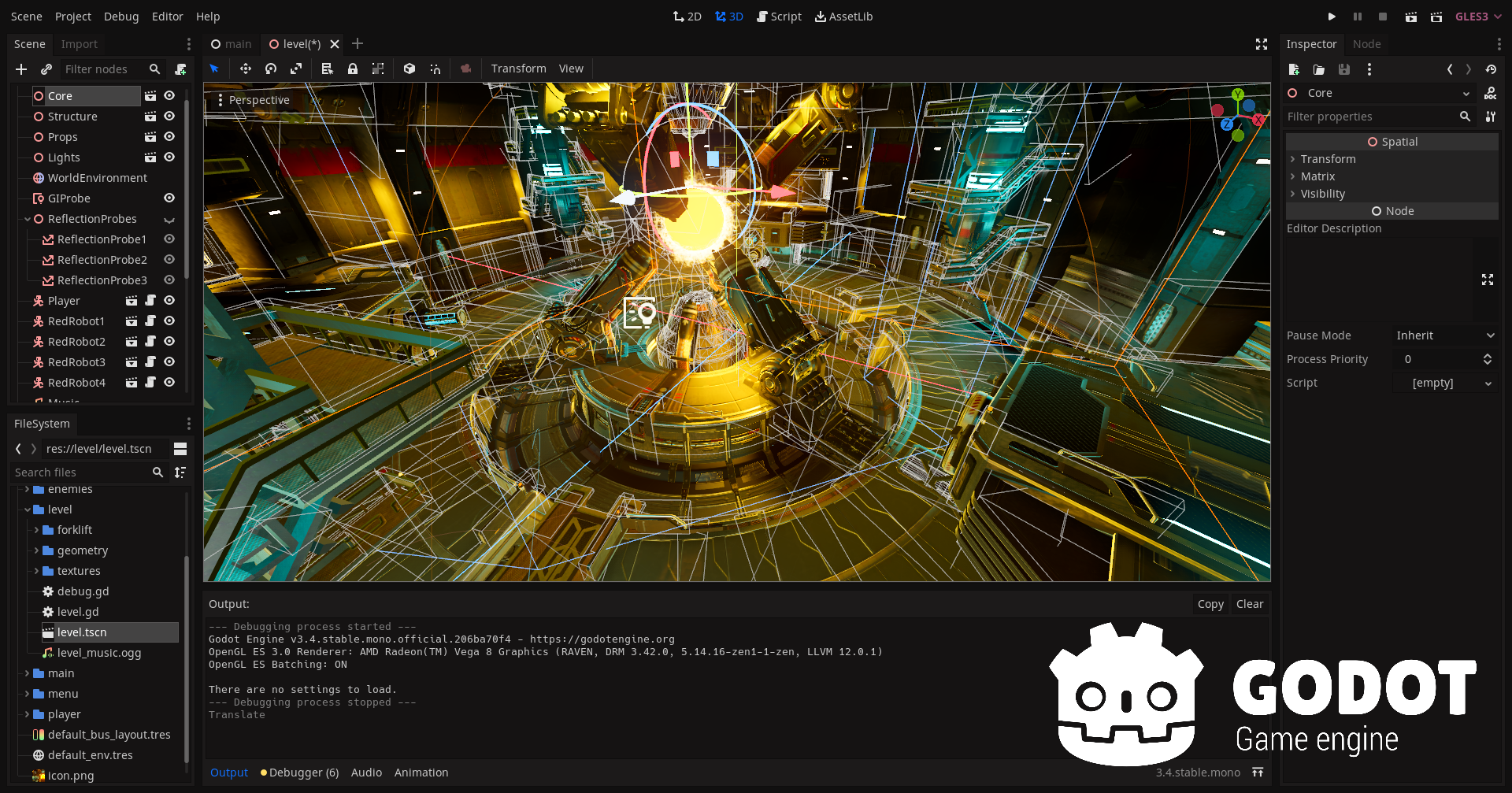The Top 3 Game Engines in 2023: Unity, Unreal Engine, and Godot

Game engines are similar to the architects of the virtual world. They are the secret ingredient that transforms lines of code into exciting battles, beautiful landscapes, and thrilling races. Think of them as the wizards working behind the scenes in gaming, directing the show and ensuring everything runs smoothly. It's like the brain of a video game, the unique software that makes all the game components work together. Imagine it as the conductor of an orchestra, ensuring that all the musicians (or game elements) harmonize. Game engines handle graphics, physics, sound, and more to create the enjoyable and interactive experience you have when playing video games.
Having the right tools is crucial for crafting engaging digital experiences. In this article, we'll explore the top three game engines: Unity, Unreal Engine, and Godot. These are like highly efficient workspaces for game creators, assisting them in bringing their gaming ideas to life. Don't worry; we'll keep things straightforward so that you can easily grasp what makes these game engines exceptional. Let's delve in and reveal the magic behind these potent tools!
Unity: The Jack-of-All-Trades

Unity is a lot like a Swiss Army knife for making games. It's versatile and easy to use, making it a good choice for beginners. Unity can handle both 2D and 3D game-making, and it comes with a big library of stuff you can use and extra pieces you can add. The way it's set up, you can just drag and drop things into your game. Also, Unity has a big community, so you'll always have plenty of help and stuff to learn from.
Pros:
- Unity is known for being user-friendly, which makes it great for beginners.
- It can be used on various devices, like PCs, phones, consoles, and VR/AR.
- You can find a bunch of pre-made things in Unity's store.
- Unity has a big and active group of users, so you can find lots of help and resources.
Cons:
- Some people think Unity's performance isn't as good as Unreal Engine.
- It might not look as amazing right from the start compared to Unreal Engine.
- Even though there's a free version, some advanced stuff needs a paid subscription.
Unreal Engine: The Graphic Powerhouse

Unreal Engine is your top choice if you want your game to look amazing. This engine is known for having jaw-dropping graphics, especially in the 3D world. Unreal Engine's Blueprint system lets people who don't know much about coding create complex game stuff. If you're good at coding, it supports C++ too. But Unreal Engine is tougher to learn, so it's better for folks ready to put in extra work for super good looks.
Pros:
- Unreal Engine is famous for its great graphics and lifelike worlds.
- Blueprints in Unreal Engine make it easier for non-coders to create games.
- It's the way to go for making really immersive experiences.
- You only pay Unreal when your game makes a lot of money.
Cons:
- Unreal Engine can be tricky, especially for beginners.
- Making fancy graphics can be hard on your computer, which might limit your audience.
- Even though you don't pay right away, the costs can get pretty big when your game starts making money.
Godot: The Open-Source Surprise

Godot is the underdog in the game engine world. It's open-source, so it doesn't cost anything to use, and the community is growing fast. Godot focuses on being easy to use, which is great for indie developers. It works for both 2D and 3D games and has its own scripting language, GDScript, which is simple to pick up. While Godot might not have Unreal Engine's fancy graphics, it's still a solid choice for lots of game projects.
Pros:
- Godot is completely open source and free, even for making money from your games.
- It doesn't need a powerful computer to run.
- You have full control over your game's code and design.
- Godot can handle both 2D and 3D game-making.
Cons:
- The community is smaller than Unity and Unreal, so there are fewer resources and things to use.
- While it can do the job, Godot's graphics might not be as impressive as Unreal Engine's.
- Getting good at Godot might take a while, especially if you're new to game development.
Here is a more detailed comparison of the three engines:
| Unity | Unreal Engine | Godot | |
|---|---|---|---|
| Ease of Use | Unity is famous because it's easy to use. It has a special visual editor that helps both beginners and experts make games without a lot of trouble. | Unreal Engine is quite tricky for beginners because it's more complex, but it comes with many advanced features and abilities. | Godot is like a mix of Unity and Unreal Engine, giving you easy tools while still having important features. It's good for both new and experienced game makers. |
| Programming Languages | Unity is liked by many because it uses a language called C# for making games. C# is a language that lots of people use, so it's a good choice for game creators. | Unreal Engine uses a language called C++, which is super fast but might be much more complex for newbies. | Godot has its own language, GDScript, kind of like Python. It's easy for everyone, whether you're new or a pro in coding. |
| Features | Unity has lots of things to help you make games: 2D and 3D games, stuff for AR and VR, and a store with many things you can use in your games. | Unreal Engine is really good at making things look amazing in games. It can do super realistic graphics and physics stuff. Plus, it's great for making movies in a virtual world, and it can make things look super real with ray tracing. | Godot comes with lots of cool stuff, like a scene system that's like building blocks, fancy visual effects called visual shaders, and a bunch of tools for making games, all packed inside. |
| Graphics | Unity is good for both 2D and 3D graphics, but making them look super fancy can be a bit of work. | Unreal Engine is famous for its beautiful graphics, real-time ray tracing, and amazing visual effects, so it's a great pick for projects that need top-notch graphics. | Godot is good for making 2D games and has okay graphics, but Unreal Engine is better for 3D games because it makes things look more real. |
| Physics | Unity comes with a strong physics system for both 2D and 3D games, which helps make things like collisions and object movements look very real. | Unreal Engine has a strong physics system that can do complicated simulations and actions in 3D worlds. | Godot's physics engine is like a flexible tool for different types of games. It can handle both 2D and 3D physics, making it a good choice for many game styles. |
| Community | Unity has a big, helpful community with lots of tutorials, forums, and stuff you can use, so you won't have trouble finding help and things you need. | Unreal Engine has lots of people who help and lots of information to learn from, especially if you want to make really fancy games. | Godot's group of game creators is getting bigger quickly, and they're known for being nice and helpful. You can find helpful stuff, but there's not as much as Unity or Unreal Engine have. |
| Licensing | Unity has a version you can use for free, which is good for most people. But if you want extra stuff, you can pay for the Pro version. | Unreal Engine is okay to start with for free, but if you make a lot of money from your game, you have to share some of it with Unreal Engine. | Godot is a good choice for small game makers because it doesn't cost anything and you don't have to pay any extra money when your game does well. It's open to everyone and free. |
Conclusion
In conclusion, picking the best game engine relies on your project's size, your experience, and what you like. Unity is friendly to beginners and works for a lot of things. Unreal Engine looks super cool but takes more time to learn. Godot is a free option with more people using it. The right game engine for you is the one that matches your game-making dreams. Now, with these ideas, you can make a smart decision and start your game-making adventure.
